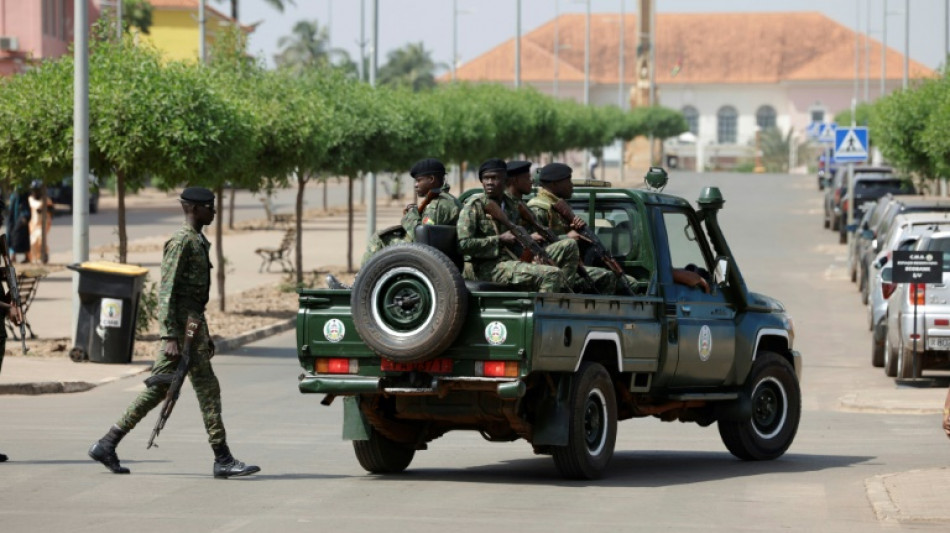

G.Bissau rocked by coup d'etat, president's arrest
Military officials in Guinea-Bissau declared taking "total control" of the coup-prone west African country Wednesday, arresting its president, closing its borders and suspending its electoral process three days after general elections.
The officers' announcement followed heavy gunfire that rang out near the presidential palace earlier in the day, with men in military uniform taking over the main road leading to the building.
In the early afternoon, General Denis N'Canha, head of the presidential military office, told members of the press that a command "composed of all branches of the armed forces, was taking over the leadership of the country until further notice".
He read the announcement seated at a table and surrounded by armed soldiers.
Incumbent president Umaro Sissoco Embalo, who had been favoured to win last Sunday's election, was arrested and being held at general-staff headquarters where he is being "well-treated", a military source told AFP.
A senior officer who also confirmed the arrest added that Embalo had been detained along "with the chief of staff and the minister of the interior".
Opposition leader Domingos Simoes Pereira, who was barred from last weekend's presidential election by the Supreme Court, was additionally arrested Wednesday, according to two sources close to the politician.
Unable to run, Pereira cast his support behind opposition candidate Fernando Dias. He and Embalo had both already declared victory in the presidential race, with official provisional results expected Thursday.
Tumultuous Guinea-Bissau has experienced four coups since independence, as well as multiple attempted coups.
Political stability was one of the major issues in the election, given the nation's turbulent past. In October the country's army said it thwarted an "attempt to subvert the constitutional order" and arrested several senior military officers.
- Curfew and closed borders -
N'Canha, in his declaration Wednesday, claimed a plan had been uncovered to destabilise Guinea-Bissau "involving national drug lords" that had included "the introduction of weapons into the country to alter the constitutional order".
In addition to halting "the entire electoral process", he said military forces had suspended "all media programming", closed "land, air, and sea" borders, and imposed a mandatory curfew.
By the end of the day, the streets of Bissau were deserted, and the military had taken control of all the main thoroughfares, AFP journalists observed.
Guinea-Bissau is among the world's poorest countries and is also a hub for drug trafficking between Latin America and Europe, a trade facilitated by the country's long history of political instability.
The country's National Electoral Commission (CNE) was additionally attacked by unidentified armed men on Wednesday, commission communications official Abdourahmane Djalo told AFP.
UN Secretary-General Antonio Guterres was "following the situation with deep concern", his spokesman said, and urged all stakeholders to "exercise restraint and respect the rule of law".
The country's former colonial ruler Portugal additionally called for the resumption of the electoral process, discouraging "any act of institutional or civic violence".
- Repeat crises -
More than 6,780 security forces, including from the Economic Community of West African States (ECOWAS) Stabilisation Force, were deployed for Guinea-Bissau's vote and the post-election period.
The country's last presidential vote in 2019 was marked by a four-month post-election crisis as both main candidates claimed victory.
The country's 2025 election notably excluded PAIGC and Pereira, who were struck from the final list of candidates and parties by the Supreme Court, which said they had filed their official applications too late.
In 2023, Embalo dissolved the legislature -- which was dominated by the opposition -- and has since ruled by decree.
The opposition says PAIGC's exclusion from the presidential and parliamentary elections amounts to "manipulation" and maintains that Embalo's term expired on February 27, five years to the day after his inauguration.
The west African region has been rife with coups in recent years, with Mali, Burkina Faso, Niger and Guinea all having had their governments toppled.
W.Lievens--JdB



